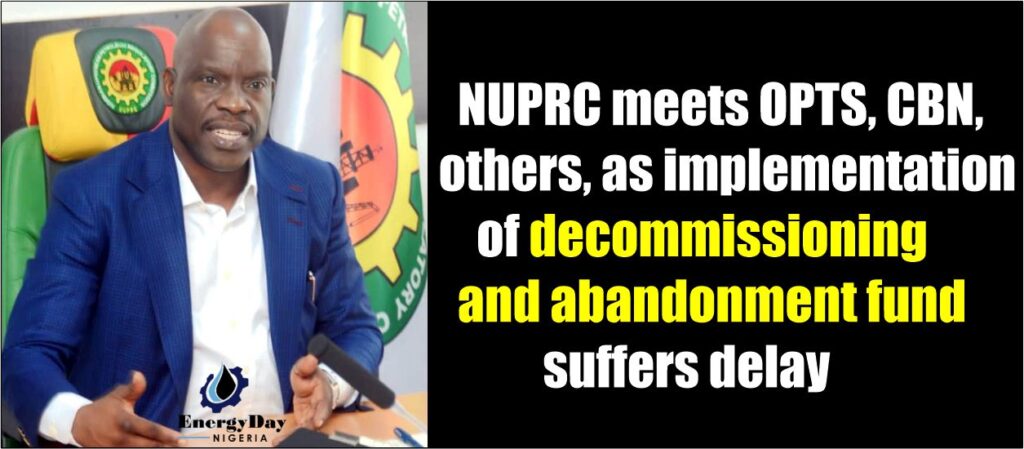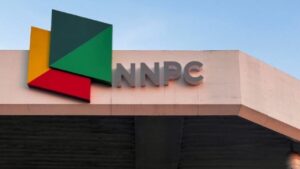NUPRC meets OPTS,CBN, others, as implementation of decommissioning, abandonment fund suffers delay

Oredola Adeola
The Nigerian Upstream Petroleum Regulations Commission (NUPRC) is making effort towards the implementation of the domiciliation of decommissioning and abandonment funds, which was already scheduled for full implementation by February 2023.
This was revealed at the weekend when Engr Gbenga Komolafe Commission Chief Executive (CCE) met with the members of the Oil Producers Trade Section, staff of the Nigerian National Petroleum Company Ltd(NNPCL), Mr. Umar Ajiya, Chief Financial Officer, NNPCL and Dr. Kingsley Obiora, Deputy Governor, CBN.
Oil Producing Trade Section (OPTS) is made up of 30 indigenous and international members operating about 90 percent of the total oil and gas production in Nigeria.
According to the NUPRC, the meeting was also expected to address the financial constraint in the upstream oil and gas sector and to create an enabling environment to drive investment in the sector.
EnergyDay checks noted that setting up of funds for the decommissioning and abandonment are based on the provision of the Petroleum Industry Act (PIA) 2021.
The guidelines for the abandonment program and decommissioning of oil and gas facilities of any soon-to-be abandoned oil field are provided in the Environmental Guidelines and Standards for the Petroleum Industry in Nigeria (EGASPIN) issued by NUPRC based on the provision of the PIA.
EnergyDay’s check however showed that the fund under the Commission’s upstream petroleum decommissioning and abandonment regulations, which is in the final stage of being gazetted, was supposed to have been taken off before February 2023, which is 18 months after PIA became effective.
The Commission however did not provide details for the delay of the implementation.
According to Anderson a professional advisory firm, decommissioning is the process of returning an oil production site to its pre-lease condition at the end of the useful life of the oil asset, can be a costly exercise for the companies involved and can also be challenging for the government, in terms of enacting effective regulations to enforce remediation and restoration of the environment.
It further revealed that the process has become a costly challenge requiring direct financial intervention by the government and the creation of incentives for operators to continually improve and optimise decommissioning performance.





